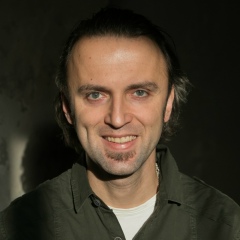Забавная статья на "Ведомостях" про необходимость рывка 10 - 15 миллионников и приравненных к ним городов в ближайшие 10 лет. В статье эти города называются городами первой лиги, при том к высшей относятся Петербург и Москвы, ко второй все остальные. Автор рассуждает на тему того, что малые города второй лиги (коими, очевидно, по его мнению, являются все города с населением менее 800 000) обречены на деградацию. Чтобы спасти хоть что-то, считает автор, надо все силы бросить на развитие Нижнего Новгорода, Воронежа, принеся в жертву Мурманск, Ярославль или Кострому.
При этом, считает автор, не нужно рассуждать об инстициональных изменениях, повороте денег из москвы в регионы и т.д. Ибо невозможно политически
На первый взгляд, все может показаться логично. Ресурсов, пишет автор, на всех все равно не хватит, у миллионников есть хотя бы шанс выжить, остальным придется отползти в сторону и стать донорами человеков и ресурсов.
Но вот есть несколько проблемок:
1) Гуманистическо-экономическая. Чего бы мы не рассуждали, но богатство Москвы и отчасти Петербурга связано вовсе не только, а зачастую и не столько с их собственными успешными проектами, а с банальной перекачкой денег из всей остальной страны. Что Москвы и Петербург будут делать без сибирского и северного газа и нефти, без мурманского, владивостокского и т.д. портов, без нарильского, липецкого, череповецкого металла? Следовательно, люди в этих городах все равно будут жить. И план, предлагаемый автором просто расширяет территорию элоев до 15 - 17 городов, и остальную россию сознательно совершенно погружает в мир морлоков.
2) Социально-антропологическая. Перекачка денег не решит главную проблему регионов - оно не прибавит желания людям жить в этих регионах. В России есть масса мест, где люди живут вполне с удовольствием и гордятся этим. Казань, в которой я не был, но все это говорят, Ярославль и Вологда, в которых я был и люди там явно получают удовольствие от жизни - что отражается, кстати сказать и в экономике - Ярославская область до сих пор в числе регионов-доноров, а Вологодская лишь недавно оттуда выпала.
3) Управленческая. Она вытекает из предыдущей. У нас уже никого не удивляют губернаторы, которые проводят в Москве больше времени, нежели в своих регионах. Опять же дозированная закачка денег в регионы, рост ВРП на 2 - 10% не позволит никак изменить эту ситуацию.
Наконец, 4) На самом деле все что пишет автор основано на одном важном допущении, которое по сути является неправдой. Основываясь на чисто экономических данных автор пишет, что Петербург относится к высшей лиге. Таким образом, фактически, он хочет выровнять остальные города миллионники по этому уровню. Но Петербург и это чувствуется институционально сполз в первую лигу. Огромное количество предприятий в разных отраслях экономики превращены по сути в филиалы московских структур. В этих филиалах царят либо временщики, которые сами собираются в Москву, либо местные авторитарные лидеры деятельность которых по сути сводится к выслуживанию перед Москвой за региональную власть. Яркий пример появление Лайф78. Или попытка слияния РНБ и РГБ. Таким образом Петербург уже деградирует в плане человеческого капитала. Поскольку люди отсюда уезжают. Выравнивание по этому уровню остальных городов миллионников на бумаге может и будет что-то значить, но реально не изменит ситуации в стране.
https://www.vedomosti.ru/opinion/articles/2017/04/25/687224-pervaya-liga-gorodov?utm_source=vk.com&utm_medium=social&utm_campaign=sovokupnyy-byudzhet-13-ne-stolichnyh-gorodo
При этом, считает автор, не нужно рассуждать об инстициональных изменениях, повороте денег из москвы в регионы и т.д. Ибо невозможно политически
На первый взгляд, все может показаться логично. Ресурсов, пишет автор, на всех все равно не хватит, у миллионников есть хотя бы шанс выжить, остальным придется отползти в сторону и стать донорами человеков и ресурсов.
Но вот есть несколько проблемок:
1) Гуманистическо-экономическая. Чего бы мы не рассуждали, но богатство Москвы и отчасти Петербурга связано вовсе не только, а зачастую и не столько с их собственными успешными проектами, а с банальной перекачкой денег из всей остальной страны. Что Москвы и Петербург будут делать без сибирского и северного газа и нефти, без мурманского, владивостокского и т.д. портов, без нарильского, липецкого, череповецкого металла? Следовательно, люди в этих городах все равно будут жить. И план, предлагаемый автором просто расширяет территорию элоев до 15 - 17 городов, и остальную россию сознательно совершенно погружает в мир морлоков.
2) Социально-антропологическая. Перекачка денег не решит главную проблему регионов - оно не прибавит желания людям жить в этих регионах. В России есть масса мест, где люди живут вполне с удовольствием и гордятся этим. Казань, в которой я не был, но все это говорят, Ярославль и Вологда, в которых я был и люди там явно получают удовольствие от жизни - что отражается, кстати сказать и в экономике - Ярославская область до сих пор в числе регионов-доноров, а Вологодская лишь недавно оттуда выпала.
3) Управленческая. Она вытекает из предыдущей. У нас уже никого не удивляют губернаторы, которые проводят в Москве больше времени, нежели в своих регионах. Опять же дозированная закачка денег в регионы, рост ВРП на 2 - 10% не позволит никак изменить эту ситуацию.
Наконец, 4) На самом деле все что пишет автор основано на одном важном допущении, которое по сути является неправдой. Основываясь на чисто экономических данных автор пишет, что Петербург относится к высшей лиге. Таким образом, фактически, он хочет выровнять остальные города миллионники по этому уровню. Но Петербург и это чувствуется институционально сполз в первую лигу. Огромное количество предприятий в разных отраслях экономики превращены по сути в филиалы московских структур. В этих филиалах царят либо временщики, которые сами собираются в Москву, либо местные авторитарные лидеры деятельность которых по сути сводится к выслуживанию перед Москвой за региональную власть. Яркий пример появление Лайф78. Или попытка слияния РНБ и РГБ. Таким образом Петербург уже деградирует в плане человеческого капитала. Поскольку люди отсюда уезжают. Выравнивание по этому уровню остальных городов миллионников на бумаге может и будет что-то значить, но реально не изменит ситуации в стране.
https://www.vedomosti.ru/opinion/articles/2017/04/25/687224-pervaya-liga-gorodov?utm_source=vk.com&utm_medium=social&utm_campaign=sovokupnyy-byudzhet-13-ne-stolichnyh-gorodo
A funny article on Vedomosti about the need for a jerk of 10-15 million people and similar cities in the next 10 years. In the article, these cities are called the cities of the first league, while the highest are St. Petersburg and Moscow, the rest are all the rest. The author argues that small cities of the second league (which, in his opinion, are obviously all cities with a population of less than 800,000) are doomed to degradation. In order to save at least something, the author believes, all efforts should be devoted to the development of Nizhny Novgorod, Voronezh, having sacrificed Murmansk, Yaroslavl or Kostroma.
In this case, the author believes, there is no need to talk about institutional changes, the turn of money from Moscow to the regions, etc. For politically impossible
At first glance, everything may seem logical. Resource, the author writes, is still not enough for everyone, millionaires have at least a chance to survive, the rest will have to crawl to the side and become donors of people and resources.
But here are a few problems:
1) Humanistic and economic. Whatever we argue, the wealth of Moscow and partly Petersburg is not only connected, and often not so much with their own successful projects, but with the banal transfer of money from the rest of the country. What Moscow and St. Petersburg will do without Siberian and northern gas and oil, without Murmansk, Vladivostok, etc. ports, without the Naryl, Lipetsk, Cherepovets metal? Consequently, people in these cities will still live. And the plan proposed by the author simply extends the territory of the Aeloes to 15-17 cities, and he consciously completely immerses the rest of Russia in the world of Morlocks.
2) Socio-anthropological. Pumping money will not solve the main problem of the regions - it will not add to the desire of people to live in these regions. In Russia there are many places where people live quite with pleasure and are proud of it. Kazan, in which I have not been, but everyone says it, Yaroslavl and Vologda, in which I was and people there clearly enjoy life - which, incidentally, is reflected in the economy - the Yaroslavl region is still among the donor regions, and Vologda only recently dropped out of there.
3) Management. It follows from the previous one. Governors who spend more time in Moscow than in their regions no longer surprise us. Again, a metered injection of money into the regions, a GRP growth of 2 - 10% will not allow this situation to be changed.
Finally, 4) In fact, everything that the author writes is based on one important assumption, which is essentially untrue. Based on purely economic data, the author writes that Petersburg belongs to the major league. Thus, in fact, he wants to align the remaining cities with millionaires at this level. But Petersburg, and this is felt institutionally slipped into the first league. A huge number of enterprises in various sectors of the economy are essentially transformed into branches of Moscow structures. Either temporary workers who gather in Moscow or local authoritarian leaders whose activities essentially boil down to serving Moscow for regional power reign in these branches. A vivid example of the appearance of Life78. Or an attempt to merge MFN and RSL. Thus, Petersburg is already degrading in terms of human capital. Because people are leaving here. Alignment of other millionaire cities on paper at this level can and will mean something, but it really will not change the situation in the country.
https://www.vedomosti.ru/opinion/articles/2017/04/25/687224-pervaya-liga-gorodov?utm_source=vk.com&utm_medium=social&utm_campaign=sovokupnyy-byudzhet-13-ne-stolichnyh-gorodo
In this case, the author believes, there is no need to talk about institutional changes, the turn of money from Moscow to the regions, etc. For politically impossible
At first glance, everything may seem logical. Resource, the author writes, is still not enough for everyone, millionaires have at least a chance to survive, the rest will have to crawl to the side and become donors of people and resources.
But here are a few problems:
1) Humanistic and economic. Whatever we argue, the wealth of Moscow and partly Petersburg is not only connected, and often not so much with their own successful projects, but with the banal transfer of money from the rest of the country. What Moscow and St. Petersburg will do without Siberian and northern gas and oil, without Murmansk, Vladivostok, etc. ports, without the Naryl, Lipetsk, Cherepovets metal? Consequently, people in these cities will still live. And the plan proposed by the author simply extends the territory of the Aeloes to 15-17 cities, and he consciously completely immerses the rest of Russia in the world of Morlocks.
2) Socio-anthropological. Pumping money will not solve the main problem of the regions - it will not add to the desire of people to live in these regions. In Russia there are many places where people live quite with pleasure and are proud of it. Kazan, in which I have not been, but everyone says it, Yaroslavl and Vologda, in which I was and people there clearly enjoy life - which, incidentally, is reflected in the economy - the Yaroslavl region is still among the donor regions, and Vologda only recently dropped out of there.
3) Management. It follows from the previous one. Governors who spend more time in Moscow than in their regions no longer surprise us. Again, a metered injection of money into the regions, a GRP growth of 2 - 10% will not allow this situation to be changed.
Finally, 4) In fact, everything that the author writes is based on one important assumption, which is essentially untrue. Based on purely economic data, the author writes that Petersburg belongs to the major league. Thus, in fact, he wants to align the remaining cities with millionaires at this level. But Petersburg, and this is felt institutionally slipped into the first league. A huge number of enterprises in various sectors of the economy are essentially transformed into branches of Moscow structures. Either temporary workers who gather in Moscow or local authoritarian leaders whose activities essentially boil down to serving Moscow for regional power reign in these branches. A vivid example of the appearance of Life78. Or an attempt to merge MFN and RSL. Thus, Petersburg is already degrading in terms of human capital. Because people are leaving here. Alignment of other millionaire cities on paper at this level can and will mean something, but it really will not change the situation in the country.
https://www.vedomosti.ru/opinion/articles/2017/04/25/687224-pervaya-liga-gorodov?utm_source=vk.com&utm_medium=social&utm_campaign=sovokupnyy-byudzhet-13-ne-stolichnyh-gorodo
У записи 2 лайков,
0 репостов,
222 просмотров.
0 репостов,
222 просмотров.
Эту запись оставил(а) на своей стене Константин Крылов






















